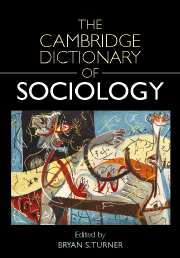M
Published online by Cambridge University Press: 22 October 2021
Summary
MacIntyre, Alasdair (1929– )
From his early twenties onwards, MacIntyre's work has been dominated by criticism of moral individualism and moral relativism. The critique of moral individualism led him to sociology, which he taught at the University of Essex in the 1960s. Keen to strengthen a contextual understanding of practical reason in the wake of Ludwig Wittgenstein's Philosophical Investigations (1953), he has also been concerned to avoid the relativism to which such contextualism led in the work of Peter Winch. Their debate is to be found in Bryan R. Wilson (ed.), Rationality (1970). In After Virtue (1981) and in Whose Justice? Which Rationality? (1988), MacIntyre developed his own position, reconciling contextualism and moral realism on a neo-Aristotelian basis, using an idiosyncratic theory of tradition. MacIntyre denounces the moral emptiness of advanced liberal societies, arguing that their individualism undermines the social practices and communities required for the development of a proper sense of virtue. Turning away from sociology per se, MacIntyre argues that rigorous sociology must engage with moral and political philosophy.
His other works include (with Paul Ricoeur) The Religious Significance of Atheism (1966), A Short History of Ethics (1967), Secularization and Moral Change (1967), Marxism and Christianity (1968), Marcuse (1970), and Dependent Rational Animals (1999).
ÉMILE PERREAU-SAUSS INE
macrosociology
The sociological study of large processes and social structures, it can be illustrated by such prototypical examples as studies of revolutions (see theory of revolutions), the state, the economy, the social system, and the world-system. Macrosociology is often contrasted with microsociology, which is the sociological study of small-scale phenomena – the prototypical example is the study of face-to-face interaction.
In practice the difference between macrosociology and microsociology not only lies in the size of the unit of analysis, but also in their theoretical and epistemological commitments. Macrosociology comprises diverse approaches, including structural functionalism, Marxism, and worldsystems analysis. Nevertheless, it is with comparative- historical sociology that the label macrosociology has come to be principally associated. Characteristic contemporary exponents are Barrington Moore, Reinhard Bendix, Charles Tilly, and Theda Skocpol.
- Type
- Chapter
- Information
- The Cambridge Dictionary of Sociology , pp. 346 - 410Publisher: Cambridge University PressPrint publication year: 2006



